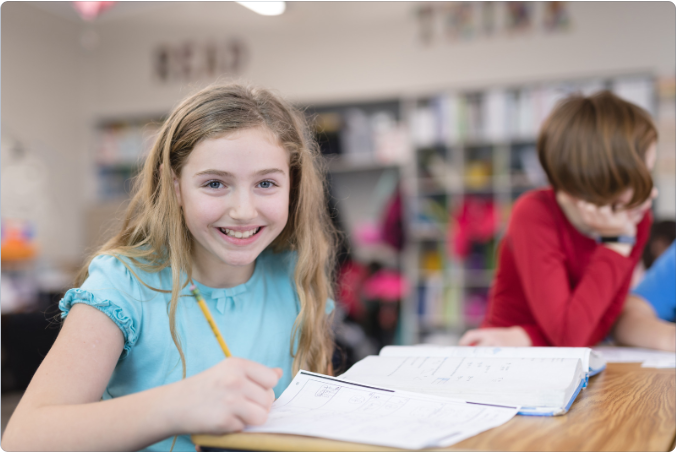Creating an engaging and inspiring learning environment for fourth-grade students is crucial for their academic growth and overall development.
With a combination of innovative teaching techniques, interactive activities, and a well-organized classroom setup, educators can capture students’ attention and foster a love for learning.
We will explore creative and practical 4th grade classroom ideas specifically designed for students.
These ideas aim to promote collaboration, critical thinking, and a sense of curiosity, ultimately helping students thrive in their educational journey.
From flexible seating arrangements to interactive project-based learning, let’s dive into a world of possibilities that will make the fourth-grade classroom a dynamic and enriching space for both teachers and students alike.
Creative Coding Club: Digital Adventures

Introduce your students to the world of coding and technology by starting a creative coding club. Utilize user-friendly platforms or coding games designed for beginners. Students collaborate to write code, design animations, and develop interactive projects. As they create digital stories, games, or simulations, they enhance their computational thinking, logical reasoning, and creativity. This club fosters a valuable skillset for the digital age while sparking innovation and teamwork.
Time Travel Adventure: Historical Role-Play

Transport your students back in time with a historical role-play activity that brings history to life. Choose pivotal moments or figures from various time periods and assign each student a role to play, whether it’s a famous historical figure, an ordinary person from that era, or even an invention. Provide ample resources for research, including books, primary sources, and online materials. As students embody their assigned roles, they gain a deeper understanding of the past, its challenges, and its impact on the present. This activity fosters empathy, critical thinking, and a love for history.
Math Mysteries: Problem-Solving Puzzles

Engage your 4th graders in a series of math mysteries that challenge their problem-solving skills and logical thinking. Create a set of intriguing math problems that involve real-world scenarios, puzzles, and brainteasers. To add an element of excitement, weave a narrative that leads students through a series of clues, each of which is unlocked by solving a math puzzle. As they tackle each challenge, students not only reinforce their mathematical abilities but also develop perseverance and a sense of accomplishment as they unravel the mysteries.
Related: 20 Excited First Day Activities for Preschool
Literary Escape Room: Exploring Story Elements

Transform your classroom into a literary escape room, where students embark on an adventure through the elements of storytelling. Choose a well-known novel or story and design a series of puzzles and challenges that relate to the plot, characters, setting, and themes. To succeed, students must analyze the text, collaborate, and use critical thinking to unlock clues that lead them to their final destination. This activity encourages a deep dive into literature, fosters teamwork, and enhances comprehension skills while making learning an exciting adventure.
Global Pen Pals: Cultural Exchange

Connect your students with peers from around the world through a global pen pals program. Partner with teachers from other countries to facilitate cross-cultural communication. Students exchange letters, emails, or even video messages, sharing insights into their daily lives, cultures, traditions, and interests. This activity promotes communication skills, cultural understanding, and empathy, while also fostering friendships and a sense of global citizenship.
Inventor’s Workshop: Innovative Creations

Ignite your students’ imaginations with an inventor’s workshop where they become aspiring inventors. Provide a variety of everyday materials, recyclables, and craft supplies. Challenge students to brainstorm, design, and create unique inventions that solve real-world problems or enhance everyday life. Encourage them to sketch their ideas, build prototypes, and present their creations to the class. This activity fosters creativity, critical thinking, and problem-solving skills, while also nurturing a sense of innovation and curiosity.
Math in Motion: Geometry Scavenger Hunt

Transform geometry lessons into an interactive adventure with a math in motion scavenger hunt. Hide geometric shapes and objects around the classroom or school grounds. Provide students with clues and challenges that involve identifying, measuring, and classifying the shapes they find. As they explore, measure angles, and analyze spatial relationships, they reinforce geometry concepts in a hands-on and engaging way. This activity not only enhances math skills but also encourages teamwork and outdoor exploration.
Related: 25 First Day of Preschool Activities for 3 – 5 year Olds
Language Arts Theater: Reader’s Theater Performance

Bring literature to life by organizing a reader’s theater performance based on a selected story or play. Assign roles to students and provide them with scripts to practice reading aloud. Encourage them to express emotions, use different voices, and engage in dramatic interpretation. As they rehearse and collaborate, students improve their reading fluency, comprehension, and public speaking skills. The culminating performance allows them to showcase their literary understanding while having fun on the stage.
Virtual Field Trips: Exploring the World from Home

Embark on virtual field trips that transport students to different corners of the world without leaving the classroom. Utilize online resources to virtually visit museums, landmarks, ecosystems, and historical sites. Guide students through interactive experiences, videos, and live webcams, allowing them to explore and ask questions in real time. As they virtually journey to diverse locations, they expand their global awareness, gain insights into different cultures, and make meaningful connections to their curriculum.
Eco-friendly Project: Sustainability Showcase

Empower your students to become eco-conscious advocates by organizing a sustainability showcase. Have students research various environmental issues and solutions, such as reducing waste, conserving energy, or promoting biodiversity. Task them with creating informative posters, presentations, or even practical projects that demonstrate their understanding and proposed actions. This activity not only promotes research and communication skills but also instills a sense of responsibility for the planet, encouraging students to be stewards of a greener future.
Artistic Expressions: Cultural Collage

Immerse your students in a multicultural art project that celebrates diversity and creativity. Assign each student a different country or culture to research. They’ll explore traditional art forms, symbols, colors, and patterns unique to that culture. Then, challenge them to create a collage using a mix of materials like paper, fabric, and found objects to represent their chosen culture’s artistic essence. This activity encourages cultural appreciation, research skills, and artistic expression while fostering a deeper understanding of global societies.
Math Magicians: Interactive Board Games

Transform math learning into a playful experience with custom-made interactive board games. Divide students into groups and assign each group a specific math concept or skill to focus on, such as multiplication, fractions, or geometry. Students collaborate to design and create their own board games, incorporating math problems, challenges, and strategic thinking. This creative approach not only reinforces math concepts but also promotes teamwork, critical thinking, and game design principles.
Writer’s Workshop: Collaborative Story Creation

Ignite your students’ passion for writing by organizing a collaborative writer’s workshop. Begin a story with an intriguing opening paragraph and have each student contribute a paragraph to continue the narrative. Encourage them to build on each other’s ideas, incorporate descriptive language, and develop characters and plot twists. As the story evolves, students practice writing skills, creativity, and teamwork, culminating in a unique and captivating collective creation.
Science Sleuths: Mystery Science Investigations

Engage young scientists in a series of mystery science investigations that require them to apply their knowledge and experimental skills. Present intriguing scenarios, like a “Who Stole the Ice Cream?” mystery, where students conduct experiments to gather evidence and solve the case. Provide them with scientific tools, data collection sheets, and guidance to conduct experiments, make observations, and draw conclusions. This hands-on activity enhances critical thinking, inquiry skills, and understanding of the scientific method.
Social Studies Symposium: Cultural Show and Tell

Transform your classroom into a social studies symposium where students become experts on different cultures, time periods, or historical events. Have each student select a topic to research and prepare a presentation that includes visual aids, artifacts, and engaging storytelling. This allows students to delve deep into their chosen subjects, honing research skills, public speaking abilities, and a broader understanding of the world’s rich history and diverse societies.
Science in Action: DIY Experiments

Engage your students in hands-on scientific exploration with a series of do-it-yourself experiments. Provide a variety of materials and instructions for safe and exciting experiments, such as creating volcanoes, making slime, or studying the properties of water. Students follow the steps, make predictions, record observations, and draw conclusions. This interactive approach fosters a deeper understanding of scientific principles, encourages curiosity, and sparks a passion for discovery.
Math Masters Challenge: Real-World Applications

Challenge your students to become math masters by applying their mathematical skills to real-world scenarios. Present them with practical challenges such as budgeting a family vacation, planning a party, or designing a floor plan. Students use math concepts like addition, subtraction, multiplication, and division to solve these everyday problems. This activity not only reinforces math skills but also teaches financial literacy and problem-solving strategies that are valuable for life beyond the classroom.
Book Adaptation Theater: Bringing Stories to Life

Encourage creativity and literacy by organizing a book adaptation theater project. Have students select a favorite book and work in small groups to adapt a scene or chapter into a short play. They will need to analyze characters, dialogue, and key events, and then bring the story to life through acting, props, and costumes. This activity strengthens reading comprehension, teamwork, and communication skills while fostering a deep connection to literature.
Environmental Awareness Campaign: Visual Media

Empower your students to become advocates for environmental change with an engaging visual media project. Assign each student or group a specific environmental issue, such as pollution, deforestation, or climate change. They’ll create compelling posters, infographics, or short videos that raise awareness about the problem and suggest potential solutions. Through this project, students develop research skills, visual communication techniques, and a sense of responsibility towards the planet.
Cultural Fair: Multicultural Celebration

Host a multicultural fair where students showcase their knowledge and appreciation of different cultures. Have each student select a country, research its traditions, holidays, cuisine, and clothing, and create a booth to display their findings. The fair becomes a vibrant display of diverse cultures, with students sharing insights, artifacts, and even tasting samples of traditional dishes. This activity promotes research, cultural awareness, and a sense of unity in celebrating the rich tapestry of the world’s societies.


